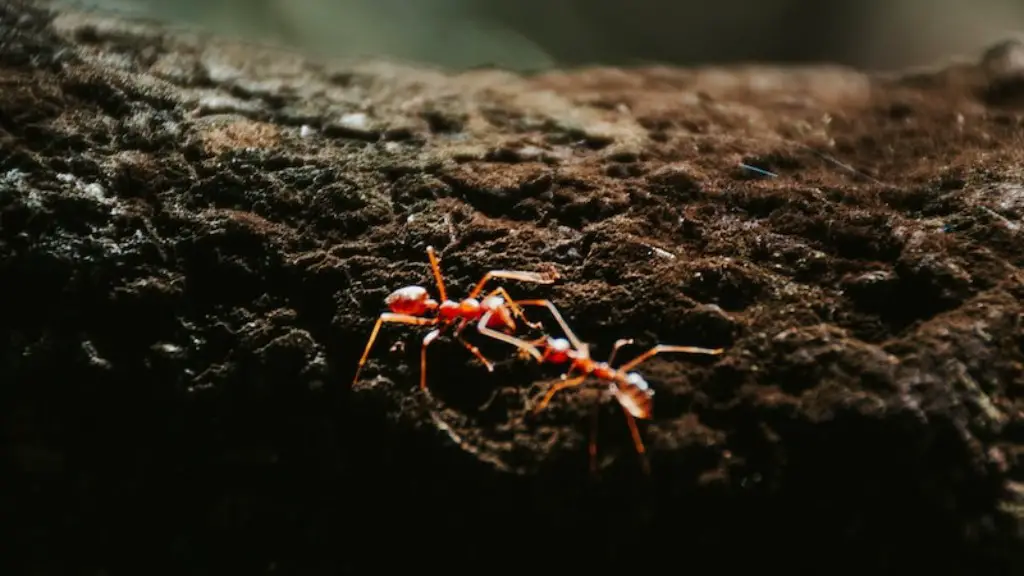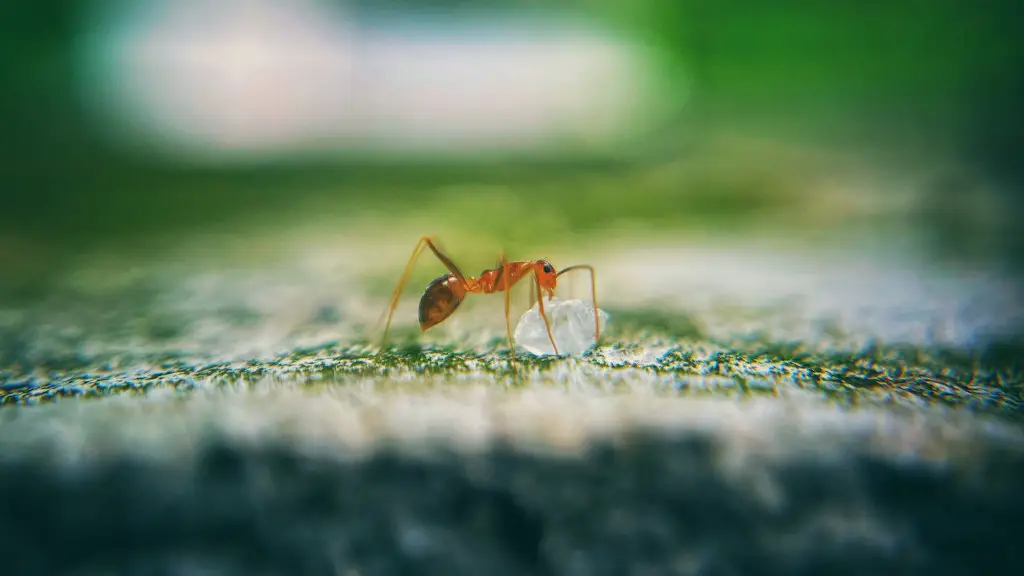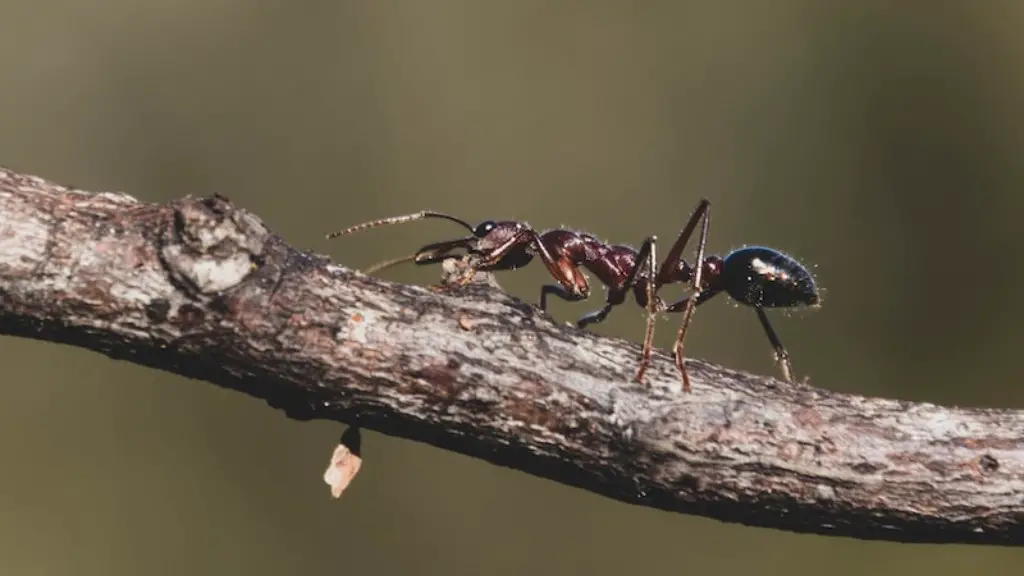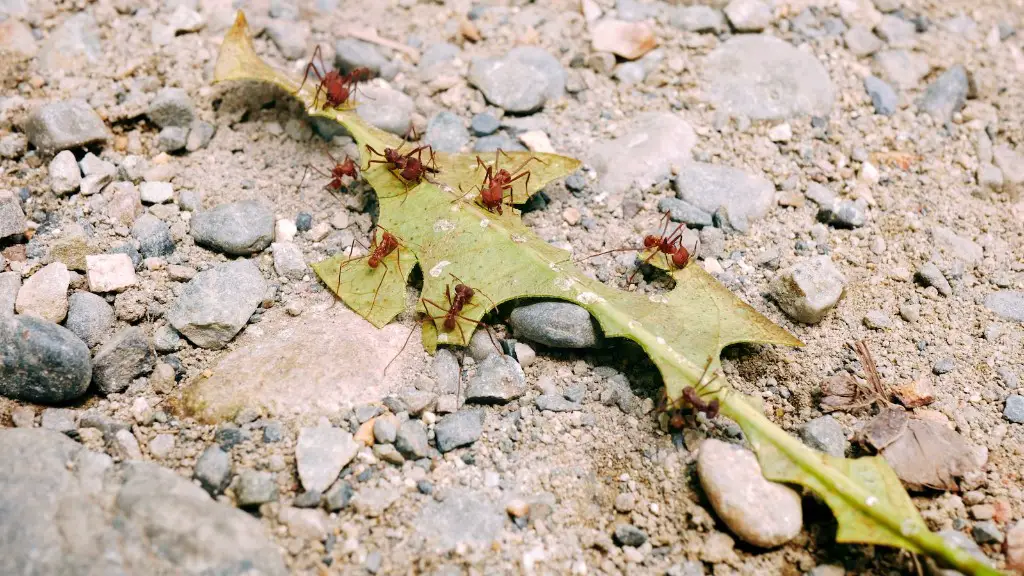Can Ants Crawl in Your Ear?
When it comes to creepy crawlies, few critters have such a disconcerting reputation as the ant. From the large Amazonian Bullet Ant to the tiny Pharaoh Ant, these small yet persistent and determined insects are capable of infiltrating even the tightest of crevices in search of food and shelter, leading some to wonder: could they wriggle their way into the human ear?
With their vast numbers and inclination to come inside, they’re certainly not the most welcome of visitors, but the truth is that while ants can very well crawl in your ear, it’s an uncommon occurrence in either adults or children. Nevertheless, it’s always a good idea to be careful and consider the reasons why ants might try to make their way inside.
The Possibility of an Ant Infestation
The most common reason why ants might feel compelled to enter your ear is that they’ve already taken up residence in your home. Ants are social creatures and the presence of one in your house is almost always an indication that there are many more nearby. Moreover, each ant leaves behind a scent trail that acts as a kind of road map for the ones that follow, letting them know where to go.
If there are ants present in your house, then they might be attracted to your bed, sofa, and even your head, which means that they could mistakenly end up in your ear. If your home is particularly prone to ant infestations, then it’s best to take steps to reduce their numbers and keep them away. Place some ant bait around your home (but not where young children or animals can get to it) and use ant traps if the ant population remains persistently high.
Ants in the Natural Environment
Another possibility is that ants could crawl into your ear while you’re out in nature. While it might not seem like the best idea to go out exploring if you’re worried that an ant might end up in your ear, it’s important to bear in mind that there are a few precautionary measures that you can take to minimize this risk.
First of all, avoid putting your head or your ear close to ant trails and ant hills, even if you don’t see any ants. It’s also a good idea to invest in some insect repellent, which can help to keep the ants away. Additionally, if you’re camping or staying in the outdoors for a prolonged period, you should make sure to wear a hat and to keep your ears covered with a pair of earplugs.
What to Do if an Ant Gets into Your Ear
If, by chance, an ant does find its way into your ear, then the first thing to do is to remain as calm as possible. Unfortunately, trying to flush the ant out with water is unlikely to work, as the ant will do their best to retreat even further into your ear in order to avoid the stream. Furthermore, this kind of action could cause the ant to drown, creating a risk of infection.
Luckily, there’s another, simpler solution. Gargling with some warm olive or almond oil will both loosen the ant’s grip on the interior of your ear and hopefully cause them to emerge. If you’ve given the ant enough time but they’re still stuck, then it’s best to seek medical attention. Depending on the severity of the problem, the doctor should be able to either remove the ant from your ear manually or use a vacuum.
What are the Dangers?
Although it’s highly unlikely, having an ant in your ear does come with certain risks. One is that the ant’s barbed body could accidentally get stuck in your eardrum, leading to internal haemorrhaging and infection. Furthermore, because of their small size, ants are also prone to carrying bacteria, which can spread and cause further damage.
In addition, and most importantly, the ant is likely to feel threatened in your ear and it might respond by releasing a chemical called pyridoxine. This compound can cause intense itching, swelling, and pain, which could potentially damage your ear in the long run. So if you think an ant has crawled into your ear, then it’s best to get it out as soon as possible.
Conclusion
No one likes to find a creepy crawly in their home, but the fear of ants taking up residence in our ears is a greater fear for some. While the occurrence is rare, there is still a chance, however small, that it could happen — and if it does, the consequences can be serious. That said, understanding the risks and taking the relevant precautions can certainly go a long way in helping us to avoid a similarly unpleasant experience.
Related Health Risks
Of course, having an ant in your ear is only one of many potential health risks that come with living in close proximity with nature. Since ants, and bugs in general, are prone to carrying bacteria and other potentially harmful substances, it’s always a good idea to take the necessary precautions in order to minimize the risk of infection.
When heading outdoors, cover your head and torso with long sleeves and trousers. Do the same when sleeping outdoors, either at a campground or even in your own back garden. Additionally, tuck your trousers into your socks and put on some insect repellent — this will help to keep the bugs away and further reduce the risk of infection.
Hygiene Habits
It’s also important to practice good hygiene habits when dealing with insects and any other invaders. Be sure to wear protective gear when removing nests and disposing of insects, and ensure that you’re disposing of insect bodies and droppings safely. Additionally, be sure to wash your hands, and any other body parts that come in contact with an insect, with warm soapy water and avoid touching your eyes, nose, and mouth until you’ve had a chance to do so.
The Emotional Impact
Ants, spiders, and other creepy crawlies often have an emotional power over us. Some people feel paralyzed with fear when they come face-to-face with a spider, while others are apathetic or even curious. For many of us, the mere thought of an unwelcome funnel-web spider in the bedroom is enough to turn our stomach and make us want to scream.
But it’s important to remember that the fear of insects is an irrational fear, and it can be conquered with the right approach and understanding. One way to help is to learn more about the creatures and their behaviors, as this can help to alleviate some of the fear and enable us to take the necessary precautions to avoid potentially dangerous situations.
Preventative Measures
When it comes to preventing a potentially dangerous situation, there are a few simple steps you can take. First, inspect the perimeter of your home, including the windows and walls, which are common entry points for ants and other creepy crawlies. Remove any material that provides ants or other insects with a potential hiding place or food source, such as cardboard boxes and old food containers. Lastly, use ant bait, traps and insect repellent strategically around your home to help keep the critters away.
The Human Connection
Finally, it’s important to remember that at the heart of the fear societies, and even cultures, often have of insects is the fear of being powerless against them. We can’t control their movements or even predict where they might end up, and this in itself can be a source of anxiety.
However, it’s important to remember that in most cases, insects are actually beneficial to humans, providing us with food and even helping to clean up the environment. Taking steps to increase our understanding and appreciation of these creatures can help to reduce our fear and ultimately help us to better manage our encounters with them.




